11th ISSUE
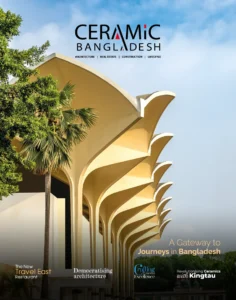
Kamalapur Railway Station: A Gateway to Journeys in Bangladesh
Kamalapur Railway Station, officially known as Dhaka Central Railway Station, stands as a bustling gateway to the vibrant capital city of Dhaka. Nestled in the heart of the city, this vital transportation hub connects travellers to all major cities in Bangladesh. As the largest and busiest railway station in the country, Kamalapur serves as a crucial link, facilitating journeys both near and far.
Read More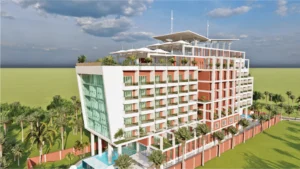
Democratising architecture: Design that inspires awe and closeness to home
It was as though the beauty, heritage, and history of Mymensingh were plotting the becoming of Architect Masudur Rahman Khan – his birth city. Growing up in vast and glorious Mymensingh, which runs along Old Brahmaputra’s shores and birthed the Nakshi Kantha, Maimansingha Gitika and Shilpacharya Zainul Abedin, the BUET-alum Architect fashions his edifices from the collective memories of his childhood.
Read More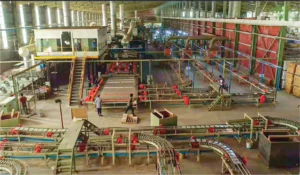
Crafting Timeless Excellence
BHL CERAMICS, the flagship brand owned by BHL GROUP Pvt. Ltd., has evolved over three decades as a dynamic business house and consumer products manufacturer. Since its inception in 2017, BHL Ceramic Co. Ltd. has become one of Bangladesh’s largest ceramic tile manufacturers, symbolizing artistry and creativity. The company’s mission is to reduce reliance on imported foreign tiles and boost domestic production, creating employment opportunities.
Read More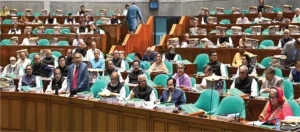
National Budget Thru Turbulent Waters Ceramic Industry Ignored in Budget
The recently unveiled Tk 7.97 trillion national budget for the 2024-25 fiscal year for Bangladesh aims to bringing a balance between controlling inflation and attaining economic growth. Economists, however, caution that higher borrowing and increased taxes on certain goods may prolong inflationary pressures. The budget’s reliance on domestic borrowing could lead to a “crowding-out effect,” restricting financing for businesses, particularly SMEs. Despite a target of 6.75 per cent GDP growth and plans to reduce inflation to 6.5 per cent, achieving these goals is deemed challenging. The budget proposes revenue of Tk 5.45 trillion with NBR tax amounting to Tk 4.80 trillion, leaving a Tk 2.56 trillion deficit to be primarily financed through bank borrowing, which may prompt money printing by the central bank and further inflation. Economists welcome the conservative approach but criticise the plan to increase electricity prices, potentially exacerbating inflation. The budget also includes initiatives for digital transformation and job creation in the IT sector, aiming to attract foreign investment. However, with foreign funding dwindling and significant tax increases on various goods, the effectiveness of these measures in achieving the stated economic targets remains uncertain. Bangladesh’s economic landscape is currently beset by numerous challenges, including stagnant investment, mounting debt repayment obligations, sluggish external sector growth, dwindling foreign exchange reserves, a fragile financial sector, tepid economic expansion, unemployment woes, and widening inequality, apart from soaring inflation. The proposed budget must confront immediate hurdles head-on through targeted budget allocations and fiscal policies. Although the budget is crafted for a single fiscal cycle, it serves as the conduit for translating the government’s economic strategies and political vision into reality. Hence, the proposed budget assumes paramount importance in tackling pressing issues such as safeguarding the interests of the impoverished, low-income, and lower-middle-income households, as well as addressing short to medium-term challenges such as fostering robust economic growth and curbing inequality. Given the prevailing economic exigencies, the FY2024-25 budget must pivot on four critical areas. Dr. Muhammad Abdul Mazid, a former chairman of the NBR, emphasised that this year’s budget cannot be compared to those announced in the past 8-10 years due to the turbulent global economy and several macroeconomic challenges facing Bangladesh. These challenges include a reserve crisis, dollar devaluation against the Bangladeshi Taka, higher inflation rates, and various governance issues. He asserted that overcoming the hurdles facing Bangladesh’s economy in the national budget will be difficult all of a sudden and in a shorter period. Instead, the government should focus on shaping a roadmap to navigate these crises. Dr. Mazid recommended that the budget should not follow the typical patterns of previous fiscal years; rather, it should include reforms in fiscal and monetary policy to address inflation, the dollar crisis, and reserve issues. Additionally, he suggested the formation of a banking commission to address loopholes in the banking sector. To curb inflation, the National Board of Revenue (NBR) could reduce duties on certain products, but effective market monitoring and management are essential to realise the benefits of such duty reductions. Strengthening the NBR’s capacity is crucial for enhanced revenue realisation. Moreover, Dr. Mazid stressed the importance of allowing concerned government organisations, such as the Anti-Corruption Commission (ACC), to operate independently to ensure effective governance. Ceramic Industry Overlooked The ceramic industry, part of the private manufacturing sector, has been significantly overlooked in the proposed national budget. Leaders of Bangladesh’s ceramic sector are urging for the removal of the 15 per cent supplementary duty on local tiles and the 10 per cent duty on domestic sanitary products. They point to rising raw material and gas prices, which have increased production costs. By eliminating these duties, they believe consumer prices would decrease. Md Shirajul Islam Mollah, a Member of Parliament and President of the Bangladesh Ceramic Manufacturers and Exporters Association (BCMEA), had previously proposed removing additional duties on raw material imports and increasing tariffs on foreign ceramic products to the National Board of Revenue (NBR) before the 2024-25 fiscal year’s budget announcement. These measures would reduce imports, save foreign exchange, and boost employment in the country. Despite the relevance of these proposals, none were addressed in the budget. The domestic ceramic market, valued at Tk 8,500 crore. Although domestic companies control over 80 per cent of the market, they face tough competition from imports due to high production costs. On one hand, due to the dollar crisis, L/Cs (letters of credit) are not being opened for importing sufficient raw materials and machinery. Additionally, despite high prices, necessary gas for producing finished goods is not being supplied. On the other hand, amidst dollar crisis, the Bangladesh Bank has announced a second term reduction in cash incentives for ceramic exports—from 10% to 6%—within a span of six months. Meanwhile, the cost of doing business continuously increases. Over the past year and a half, Bangladesh has received loans from the IMF in three installments, but despite implementing several conditions attached to the loan, there has been no such improvement; rather than deterioration. Addressing Fiscal Challenges Economists believe, in the face of daunting economic hurdles, Bangladesh must embark on a prudent fiscal course to steer through turbulent waters. With inflationary pressures mounting and investment stagnating, the budget for the 2024-25 fiscal year demands meticulous attention to fiscal prudence. The government’s traditional reliance on banking sector borrowings to bridge budget deficits exacerbates interest payment burdens amidst constrained fiscal space. Hence, a judicious fiscal consolidation strategy, entailing restrained spending and bolstered tax collection efforts, emerges as imperative. Empowering the Social Sector While substantial investments have buoyed physical infrastructure, the social sector languishes due to chronic underfunding. Education and healthcare sectors, in particular, warrant heightened attention, with allocations in FY2024 falling woefully short of requirements. Fostering human capital development through increased expenditure on education, healthcare, and skills development is indispensable for sustainable growth and inclusivity. Facilitating Small Business Growth Small businesses, the lifeblood of the economy, must be empowered through facilitated access to finance. The banking sector’s burgeoning non-performing loans pose a formidable barrier to lending, stifling entrepreneurial endeavours. Elevating
Read More
A Guide before choosing your Sanitaryware
A home needs innovative ceramic ware and everybody looks for a touch of elegance, style, and personalisation. While the design of the ceramic ware is a personal choice within whatever fits the budget, ignored, sometimes, are the sanitary ware used. However, a lot has changed over the past few decades, as the market grows – People care not only for a well-designed bedroom, but also their bathroom.
Read More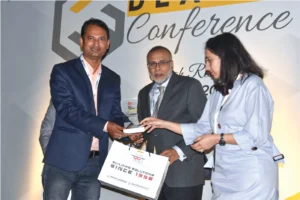
Ayesha Sanaa Asif Tabani Steps up with Sophistication Upholding Legacy of Founding Fathers of the Pioneering Ceramics Company
As the Director of Mirpur and Khadim Ceramics, Ayesha Sanaa Asif Tabani has already been an influential figure in the ceramic industry, championing the integration of modern and innovative ceramic technologies. After completing her graduation and Master’s at Queen Mary University of London, she returned home to join the family business.
Read More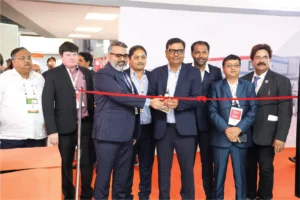
Revolutionising Ceramics with Kingtau Low Maintenance Ceramic Printing Machine
As cutting-edge technology enters into the ceramics industry, tile manufacturing processes are undergoing significant transformation. Only a few years ago, the idea of machinery capable of producing effects such as sugar textures, embossing, matte finishes, and mirror-like polish seemed unimaginable.
Read More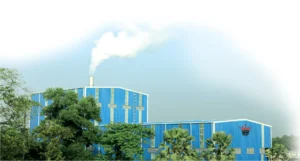
Journey of the CEO of Fu-Wang Ceramic Teamwork Makes a Company Successful
A world where the demand for ceramic products is steadily on the rise, it takes innovation, commitment, and most importantly, a dedicated team to navigate the challenges and lead a company to success. Rafiquzzaman Bhuiyan, the Chief Executive Officer (CEO) of Fu-Wang Ceramic Industry Limited (FWCIL), has not only recognised this but also executed a vision that has propelled the company to new heights.
Read More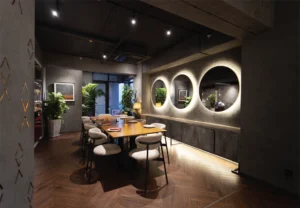
An ode to a bold architectural narrative The New Travel East Restaurant
At the heart of any remarkable restaurant lies its design—a subjective blend of form and function. The design itself becomes a storyteller, weaving narratives of contemporary tradition. The walls, the textures, the colours—they all tell a story.
Read More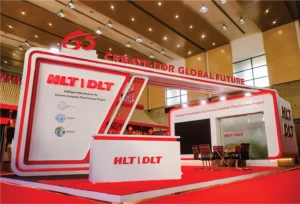
Ceramic Expo Bangladesh-2022 Contribution of Foreign Co-Sponsors
Ceramic Expo 2022 was a remarkable event for the ceramic industry to explore new business opportunities for exhibitors and visitors. It was a 3-day-long event with more than 25,000 visitors and an excellent arrangement by the organiser, Bangladesh Ceramic Manufacturers and Exporters’ Association (BCMEA).
Read More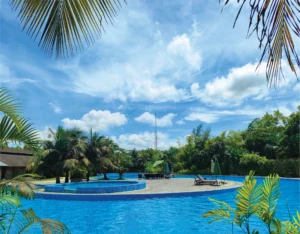
BHAWAL RESORT: A Tranquil Heaven Outside Urban Chaos
Nestled amidst the lush rainforest, the Bhawal Resort of Bangladesh emerges as a green heaven where luxury meets tranquility, offering an escape to the serene beauty of nature. In the Bhawal Resort and Spa, one can discover the idyllic bliss that defines the new dimensions of luxury in the setting of nature. Surrounded by the exotic natural rainforest, the resort is the perfect place to rejuvenate the body, mind, and soul. Here the luxury intertwines the serenity of nature for an immersive back-to-nature experience.
Read More
Rise of a Nation through Raghu Rai’s lens
On the occasion of the 75th anniversary of the Faculty of Fine Arts, University of Dhaka, the exhibition “Rise of a Nation” took center stage at the Zainul Gallery.
Read More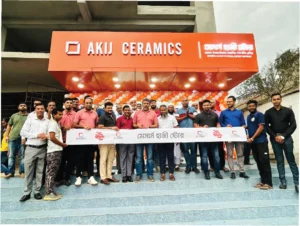
Akij Ceramics Expands Retail Footprint with New Showrooms in Cumilla and Feni
Akij Ceramics, the leading brand in the ceramic tiles industry in Bangladesh, has recently opened two exclusive showrooms — one in Cumilla and the other in Feni. As a five-time recipient of the Best Brand Award and the Super Brand Award, Akij Ceramics consistently sets the standard for quality and innovation in the country. Its unwavering commitment to the “Promise of Perfection” resonates with clients across Bangladesh.
Read More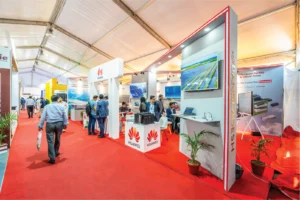
Exploring Innovations at the BIID Expo
The Bangladesh Infrastructure Innovation and Development (BIID) Exhibition, held from May 9th to 11th, 2024 in Dhaka, gained significant momentum. Organized by ExpoNet Exhibition Pvt. Ltd at the Bangabandhu International Conference Center (BICC), this three-day event brought together industry owners, professionals, and stakeholders from various sectors.
Read More
